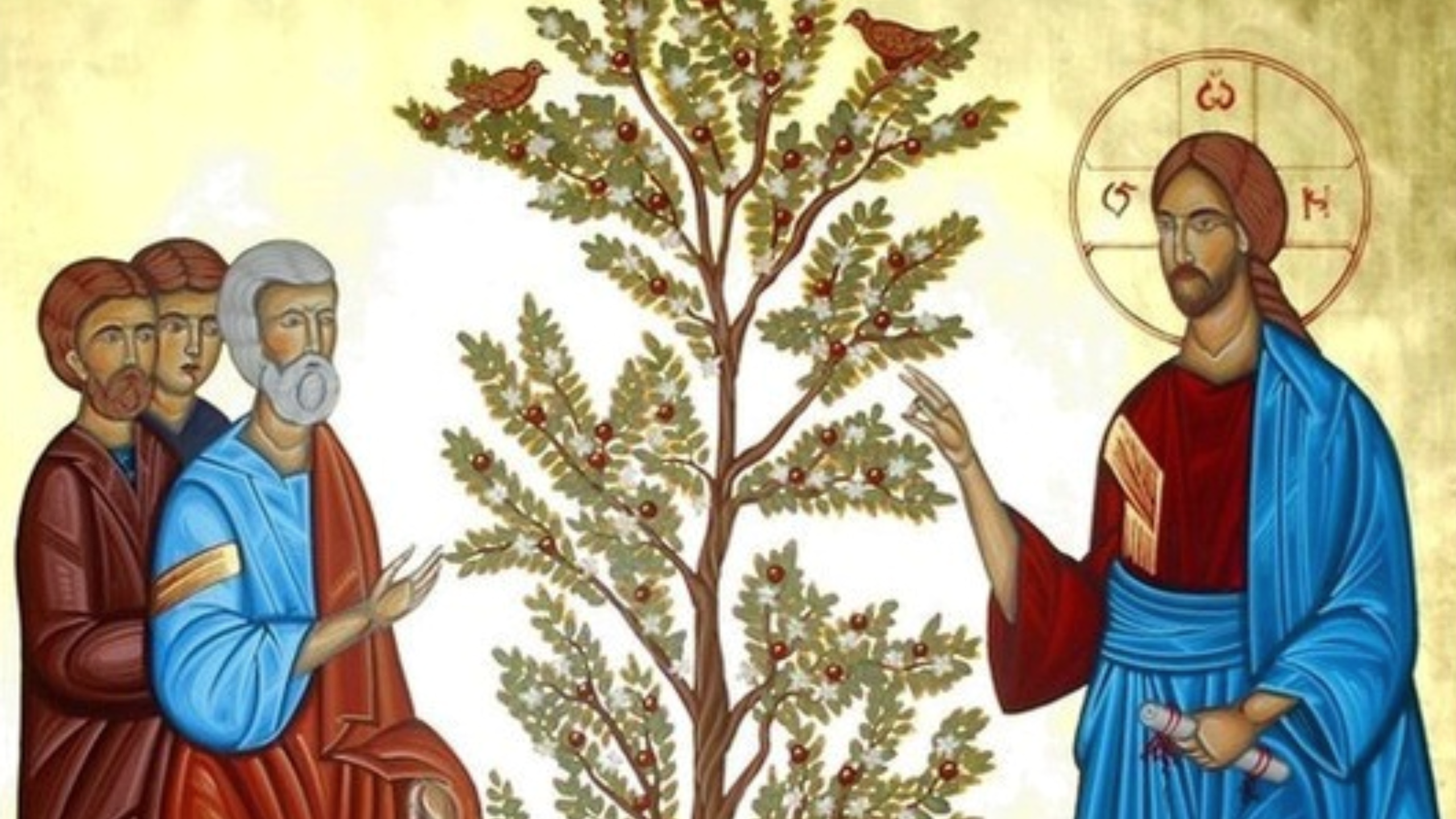Grace from Within
On Yeast and Mustard Seeds
Today is the 16th Sunday of Ordinary Time, and for this week’s video reflection I focused in on the parable of the wheat and the weeds, and on how we grow into one or the other by acting either for or against God’s purpose for us (which was the topic of last week’s reflection on the parable of the sower and the seeds). But our Lord gives us two other parables in today’s gospel (Mt 13:24-43) that we would be remiss to pass by without reflection: he compares the kingdom of heaven to a tiny mustard seed that grows into a large plant, and yeast causing bread to rise.
It’s telling that Jesus compares the kingdom of heaven not to places we can go (like a mountain top or a distant island paradise), but to natural processes: a seed growing into a plant; yeast leavening the dough. These processes are transformative, but in a way that acts according to the nature of both the mustard seed and the bread. This tells us something important about the way God’s grace operates within us.
Grace
Grace is a gift from God, which means we usually conceive of grace as something that exists outside of ourselves that we need to receive. This is especially true when we speak of the sanctifying grace we receive in the sacraments (sanctifying grace being that grace which makes us holy by giving us a participation in the divine life). We think of God’s grace being poured into us, but it would perhaps be more accurate to think instead of God’s grace welling up within us.
This is because everything that exists already possesses God’s grace. God is the sole Creator of the universe, and everything within it. He is the Principal Cause of all beings – you, me, the stars and planets, rocks and fungus, and even the devil. God is the only uncreated being. He is being itself. He alone exists by nature (“I am who am” (Ex 3:14)), meaning that everything else exists because God chooses to give it existence. So every being has a bit of the divine life within it that holds it in existence.
But this kernel of divine life is not enough to get us into heaven, as evidenced by the fact that even Satan and his devils possess it. But it does mean that God inhabits everything in the universe, including you and I, natively. God is transcendent, yes, but he is not foreign to us. The seed of his life is already within us, from the moment of our creation, without us having to do anything.
So when God gives us his sanctifying grace through the sacraments, he’s not doing anything contrary to our being. He’s activating what’s already there; expanding it, causing it to grow and blossom and bear fruit — like the mustard seed bursting open and growing into a great bush, or the dough rising from the leaven. It’s becoming what it always had the potential to be. The same is true for us.
Now why would you and I need this sanctifying grace? Why isn’t that little kernel of God’s life that we already possess enough, like it is for the rest of creation? It’s because of what we are. We are creatures not only made by God, but made for God, and therefore made in his image. God is love (1 Jn 4:8) and love is the free gift of self; so for us to be made in God’s image we must be free. Freedom is part of our nature. God loved us freely into existence for the purpose of loving him freely in return, and the fulfillment of that love — the purpose of our being — is nothing short of perfect union with our Creator.
This is all fundamentally God’s action. God loved us first. God gives us our existence. God gives us the ability to love. God gives us our freedom. God made us for himself and he gives us every gift we need in order to achieve that end (sanctifying grace), including the grace of repentance and the grace of forgiveness. But because freedom is written into our nature as part of God’s plan for us, his grace will never act against our freedom: hence the need for our cooperation with grace.
Nature
My point is this: just as a transformation occurs when the mustard seed grows into a giant bush, or when yeast causes flat dough to rise, a marvelous transformation occurs in us as we grow in holiness. But it is not a transformation from one thing into another. God’s grace does not do violence to what we are; it perfects what we are — or as St. Thomas Aquinas put it, “grace perfects nature.”
The mustard plant is already contained within the seed; it just needs the right conditions to grow. And when it does, it does not become an oak or a mulberry bush. It becomes what God always meant for it to be — it becomes itself. The same is true of us. God made us to be saints, so the potential for holiness is already within us as part of our nature. The conditions we need to grow include the soil of a willing heart and the spiritual nourishment of the sacraments. Then we will blossom into what we were always made to be.

